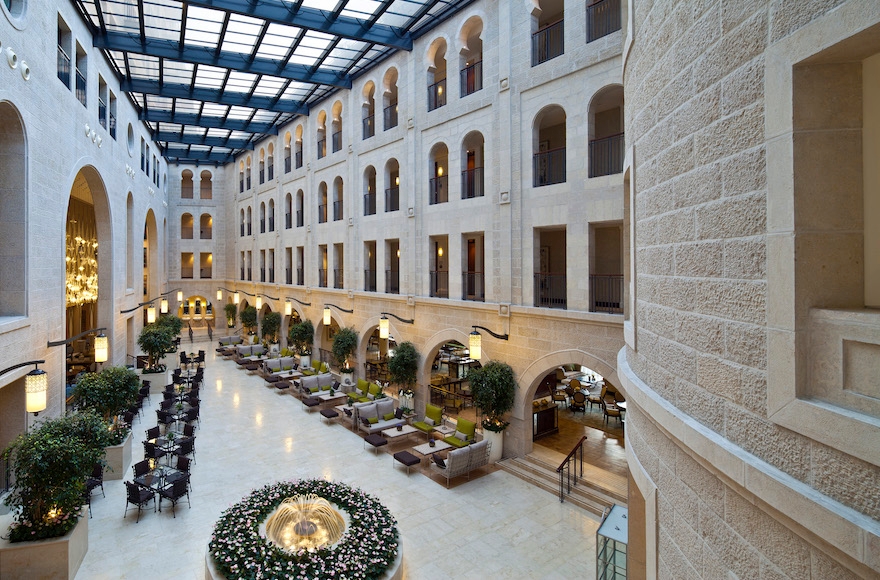This week we learned that the grand mufti of Jerusalem gave Hitler the idea for the Final Solution — or at least that Israel’s prime minister believes that.
But it turns out that Palestinian nationalist Haj Amin al-Husseini was not merely a notorious anti-Zionist and anti-Semite: He was also a talented hotel builder responsible in part for the acclaimed Waldorf Astoria Jerusalem.
The luxury hotel the mufti built, which has since been refurbished considerably and is under new management, was just named top hotel in the Middle East and seventh in the world in the Conde Nast Traveler’s annual Readers’ Choice Awards.
According to the Times of Israel, the Waldorf Astoria Jerusalem, previously the Palace Hotel, opened in 2014 following a $50 million refurbishment. The original hotel, located in western Jerusalem, near Independence Park, was empty for years, then used for government offices by both the British Mandate and Israel — and then vacant again.

The mufti of Jerusalem, Haj Amin al-Husseini, in Aley, Lebanon, where he consulted with Arab leaders on the defense of Palestine, Oct. 9, 1947. (AP Images)
Citing a recent Israeli TV report, the Times of Israel said Israel’s prestate Haganah planted listening devices in the hotel’s chandeliers to spy on meetings of Britain’s Peel Commission held from late 1936 to mid-1937.
Jerusalem’s Mamilla Hotel and King David Hotel also made the Middle East top 10 list.
According to GoJerusalem, a tourism website, the Palace was built in 1928-29 “under the order of Jerusalem’s Supreme Muslim Council and supervised by the infamous mufti of Jerusalem.”
The engineer supervising the hundreds of Arab workers was Jewish and a Haganah member, facilitating the spying incident later. But, GoJerusalem writes, the Palace didn’t stay in business long:
Due to a hardcore rivalry, much deceit (during the excavation, it was revealed that the site was an old Muslim cemetery – the Mufti covered this up) and a dash of sabotage between the British-appointed Arab mayor and the mufti, the hotel was destined to fail. Management of the hotel was handed over to a local corrupt hotelier, but it was eventually forced to close its doors once the King David opened down the block.

Help ensure Jewish news remains accessible to all. Your donation to the Jewish Telegraphic Agency powers the trusted journalism that has connected Jewish communities worldwide for more than 100 years. With your help, JTA can continue to deliver vital news and insights. Donate today.






